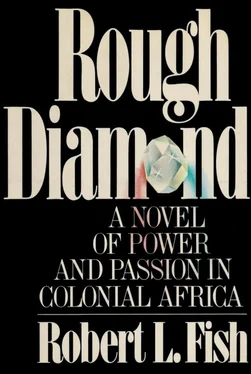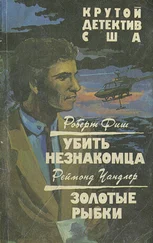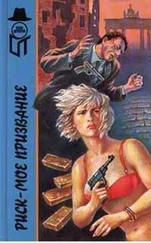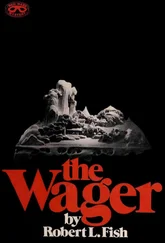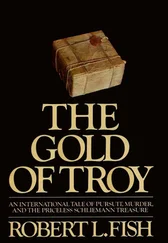Barney stopped abruptly, staring at Andries, making up his mind on the spot as he so often did. Then he continued marching along, a frown on his face, but now talking.
“Andries, I want to meet Kruger. Face to face. I want to talk to him. You can arrange it, I know.”
Andries looked doubtful. “I doubt the President would be in any mood to talk to any Englishman at the moment, Barney.”
“Put him in the mood,” Barney said stubbornly. “You can do it. I’m not like most of those idiots here today, but all the blame isn’t on their side, either; Kruger and the Volksraad rate their share. The crowd acted like bloody fools today, there’s no doubt, but this thing is working itself up into what could become a major confrontation, and when it comes to that, we’re all of us going to lose.”
“Exactly my words to the President.”
“Then set up a meeting with him for me. I’ve got to talk to him. I’m sure he knows who I am, but I’m equally sure he doesn’t know how I feel about things. Unless you’ve told him. Have you?” He glanced sideways at Andries.
“Just that there were some Uitlanders who weren’t fools. And that the Boer and the Uitlanders need each other here in the Transvaal.”
“Exactly! That’s why I have to talk to him. I don’t claim that my stand on things is the same as everyone else’s in Johannesburg, but I know there are plenty of people in town who agree with me. The Reform Committee is spoiling for trouble, you know that, and they won’t be happy until they get it. Somebody has got to stop this thing. Trouble is no answer.”
They had come to the trap with the driver waiting patiently on his seat. Andries helped Fay get in and waited as Barney handed the baby up to her and then climbed in to seat himself beside her. Andries nodded.
“I’ll do my best, Barney.”
“That’s all I can ask. And thanks, Andries. It’s important.”
The heavy-set Boer watched the trap move from the curb under the driver’s whip. Then he sighed mightily. It would not be easy to convince Kruger that a meeting with an Englishman — any Englishman, even Barney Barnato — could do anything at this point except possibly make matters worse. Especially an Englishman like Barney Barnato, who had taken as much gold from the ground of the Transvaal as any other man, and a man whom Kruger was sure to consider one of the leading exploiters of the Republic’s riches.
Then Andries suddenly smiled. He had thought of the one way that just might do it, to get Kruger to agree to meet Barney; and once they had met to hope they used the opportunity to also discuss matters that could, in turn, help the situation. It was a long shot, but it was worth the attempt…
Barney Barnato, if truth were to be told, was quite surprised to actually be granted an audience with the President of the Transvaal. Despite his feeling that an audience with the President might somehow help resolve the state of growing tension between the Uitlanders and the Boers, and despite his knowledge that Andries Pirow and Paul Kruger were old comrades-in-arms, he was also as aware as Andries as to how Kruger had to feel about any outsider after the reception he had received at their hands in the Johannesburg Market Square. But the plain fact was that Barney had been granted an audience, and although it was now January of 1894, three months after his request, at least it had been granted, and Barney hoped to make the most of it.
Alone, he drove a small and unpretentious trap, rented for the occasion, well aware of Kruger’s distaste for and distrust of ostentation. As a result he climbed down before the long low white Kruger home on the southern edge of Pretoria fairly well covered with dust. He had worn some of his oldest clothes — unusual for Barney, as he had tended to become something of a dandy once he had been able to afford it — but again his costume had been calculated. He certainly did not want to be better dressed than the President, and both Andries and Fay had advised him well in this matter, for President Paul Kruger was awaiting him on the front stoep , sitting heavily in a large rocking chair, wearing house slippers rather than shoes, and with an old shawl wrapped about his massive shoulders. There was no expression at all on his meaty face as he watched Barney secure the trap and then slap dust from his trousers and jacket before letting himself through the low front gate. Kruger did not deign to rise; instead he merely motioned to the top step of the porch, inviting Barney to seat himself there, and Barney realized that the fact that there was no second chair had been as calculated as his own means of transportation and costume, as he was sure was the absence of any other participants in their conference. It was to be a meeting unofficial in every sense.
Barney nodded cordially and did not offer his hand to be shaken; he was not sure it would be accepted, and to be rejected would be a poor way to start the meeting. Instead, he sat down on the indicated top step and looked up at Kruger. Kruger remained impassive; he appeared to be waiting for Barney to speak first, so Barney obliged.
“Mr. President,” he said in Afrikaans, glad now that Fay had been so insistent upon his learning the language properly, “I wanted very much to see you and talk to you, but in all honesty I didn’t think you’d see me. Do you mind telling me why you are?”
Kruger’s thick eyebrows rose fractionally; it was as close as he came to demonstrating astonishment. “You speak our language, Mr. Barnato? How is that?”
Barney shrugged. “When I first came to South Africa twenty-two years ago, I came with Andries Pirow from Cape Town to Kimberley, Mr. President. We both walked beside the ox wagon for two months. I was a boy of eighteen. At night, after we’d had our supper and done our chores, Andries started to teach me the language. Then I married a Boer, my wife, Fay. She insisted that I learn the language better. She taught me.”
“Your wife is a Boer?”
“Yes, sir. From Simonstown.”
“Tell her for me that she is a good teacher. You speak very well.”
“Thank you, sir. She will be pleased.”
“Yes. Now,” Kruger said, changing the subject and beginning to rock his chair very slowly, “you wish to know why I agreed to see you. It was not to hear the complaints of the Uitlanders once again, I assure you; I have heard enough of those as it is.” He paused in his rocking momentarily, his small eyes fixed upon Barney’s face, and then began rocking again, now starting to stroke his chin whiskers as he did so. “No, Mr. Barnato. The reason I agreed to talk to you is that Andries tells me you once fought the man they called the Angolan Giant, or Angolan Monster, I forget which. And that you beat him. Is this true?”
Barney stared, astonished. What a reason for a man to grant a presidential audience! “Yes, Mr. President, it’s true. But that was many years ago.”
“I know when it was. I saw the Angolan when he fought here in Pretoria before he went to Bloemfontein and then to Kimberley. When he was here he beat one of our strongest and biggest men. I would have hesitated to fight him myself, even had I been twenty years younger at the time. How is it possible that a small man like you…”
Barney sighed, thinking back to the day of the fight, remembering every moment, including waking in the Scotch cart with his head in Fay’s lap. “I had to beat him,” he said simply. “I had bet everything in the world I had that I would—”
“You gambled?”
Barney grinned ruefully. “I didn’t think it was a gamble, not until the first time he hit me. And I needed the money from the bets to get ahead in the world. There was this girl—” He stopped. After all the years he could still scarcely believe or understand his incredible luck in winning Fay. But the President wouldn’t be interested in that. “Anyway,” he went on quietly, “I knew I was faster than he was, and I’d had a lot of experience in boxing, and I was fairly sure he hadn’t. I felt a man that big had to be awkward. But I had no idea he was as strong as he was. I was very lucky. His attention was distracted a moment and that’s when I hit him. Otherwise he probably would have killed me. As it was I broke my hand with that punch and it took a month to heal. Not to mention the fact that I had a headache for a week.”
Читать дальше
